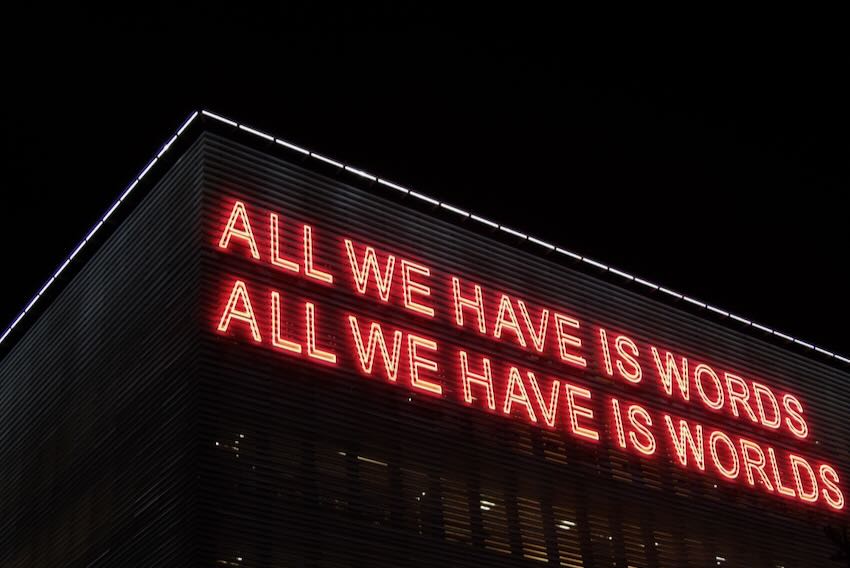
Climate literacy: Carbon positive, climate positive, net zero, low carbon, carbon neutral, carbon negative… Do some of these mean the same or are they all very different? Are some of them already replaced by other more accepted phrases as time and knowledge merges? These phrases and how we use them will become more and more important to make sure hotels and businesses are communicating the right message to the world.
With so much new and evolving terminology it’s often difficult to get a handle on a definitive explanation. Sue Williams, sustainability consultant for the UK’s first climate positive hotel, Whatley Manor, suggests Greenly as a trusted source for climate phrases.
The word positive – sounds like a good thing doesn’t it? But if you Google carbon positive you might find another meaning. In fact anything with positive and negative can be confusing because it can be referring to above or below net zero, or good or bad impact. Some definitions of carbon positive mean carbon emissions are above zero – e.g something with a carbon footprint – which isn’t a great thing to shout about, but it is common because most businesses at the moment don’t remove more carbon than they produce.
However when we recently reported a story about the Populus hotel in the US, which is opening in Denver this year, it describes itself as being the first carbon positive hotel in the US. I wrote to the hotel to check they were happy to be called carbon positive – and they confirmed that Urban Villages, Populus’ developer, defines carbon positive as “a commitment to sequester more carbon in biomass and soil than the combined embodied and operational footprints of Populus across its entire life cycle”. More simply put, removing additional carbon from the atmosphere to have a net positive impact on climate change. So for sure, in this case with this definition carbon positive is a positive description.
We then received the good news this week that Whatley Manor in the Cotswolds has become the first climate positive hotel in the UK. Climate positive, seems to mean that the hotel has removed and negated so much of its carbon emissions that it is helping the environment – with schemes which also focus on climate positive actions.
Greenly says “if you say your business is ‘climate positive’ it means your business emissions are below zero because you’ve removed more CO2 than you emitted. This phrase suggests your actions have reduced climate change.”
To me this has the same meaning as carbon negative. So climate positive and carbon negative are on a par – meaning the activity goes beyond achieving net zero carbon emissions and results in benefiting the environment even more, by removing extra carbon dioxide from the atmosphere. For example, Microsoft has committed to being carbon negative by 2030, and by 2050 it will remove from the environment all the carbon it has emitted, (either directly or by electrical consumption) since it was founded in 1975. That’s a big commitment.
Carbon neutralmeans that any CO2 released into the atmosphere from a company’s activities is balanced by an equivalent amount being removed. Companies who are doing fantastic work with sustainability, such as Iberostar Group and smaller outfits such as Beyond Apartments use the term carbon neutral in their marketing.
Climate neutral is OK as this means reducing all green house gases to zero and eliminating other negative environmental impacts a hotel might have. This sounds similar to climate positive although climate positive implies going a step further to act in a positive impactful way with initiatives to help the environment.
Climate negative, therefore, would definitely be a bad thing to sing about… and low carbon is just about making the carbon footprint as low as possible or a relatively small net release of carbon dioxide into the atmosphere. While this is a positive move – to find for example low carbon alternatives when it comes to suppliers, it doesn’t really commit to being carbon “neutral or “negative”.
Net zero is what everyone is aiming for and therefore should be clear in everyone’s minds. The UN says net zero “means cutting greenhouse gas emissions to as close to zero as possible, with any remaining emissions re-absorbed from the atmosphere, by oceans and forests for instance.”
This is the state at which global warming stops. The Paris Agreement underlines the need for net zero, which is why everyone is aiming for this goal.
Room2 takes that phrase a little further to say it is going whole life net zero – not just net zero on emissions but net zero on the whole life cycle of the properties, which takes into account the construction process and that dreaded embodied carbon.
For those involved with new hotels and construction The World Green Building Council has the 2021 publication Advancing Net Zero Whole Life Carbon which concedes that “as we continue to build, we worsen the situation. Even with carbon emissions reduced through good design and specification, utilising the best available approaches, technologies and materials, there remains a significant residual carbon impact that can only currently be addressed through offsetting.
“A transition to a fully decarbonised building and construction sector requires a complete and unprecedented migration away from fossil fuels in building operations (both new and existing), supply chains and construction processes, as well as maximising opportunities for circularity in materials and buildings.
“Therefore, in addition to aggressive emissions reduction strategies via effective, high performance building design (as set out in the Advancing Net Zero framework) and until necessary design, technological and supply chain interventions can be adopted as business-as-usual, residual emissions may remain — particularly when pursuing net zero whole life carbon.
So there you have it. It’s complicated and there will be new words, phrases and terminology coming down the line as we find ways to talk and define each action and impact. A new and exciting language in a quickly evolving and exciting space.

